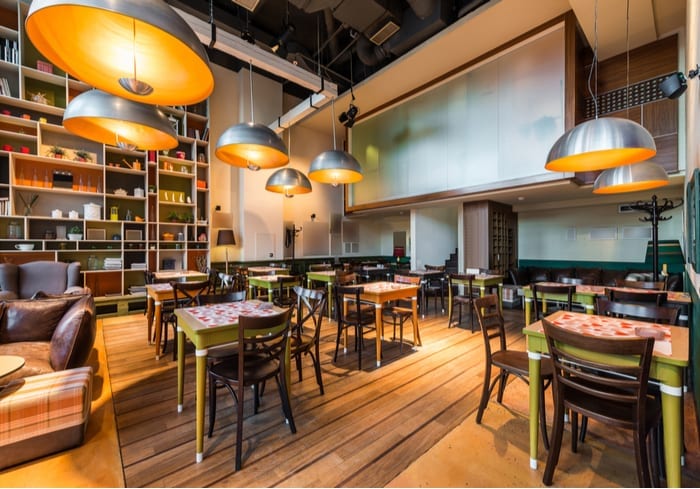How Apps Transform Restaurants Into Coworking Venues

Entrepreneurs sometimes see a need in the market for a new service due to their personal experiences: WEach Seats Co-Founder Matthew Weaver was inspired to help start his company, which turns underutilized areas of restaurants into coworking spaces because he found himself working from coffee shops and home. His wife (and co-founder) also had the same experience on her remote days. They wanted to find a more permanent remote work solution, but they didn’t want to spend a significant amount of money on a coworking hot desk and coffee shops can be unreliable.
They found restaurants to be chronically underutilized by day and thought they could be ideal partners to create a sharing economy around a much-needed workspace option. With his concept, the company works with restaurants to serve as coworking spaces on the schedules that they are open. A restaurant might be open in the morning because they are in a hotel and they have to be, say, available to guests, or a restaurants might open at 11 a.m. for regular lunch. These establishments might have second floors, side rooms or private venue spaces.
One restaurant on the company’s platform, for instance, is in a Philadelphia hotel. The restaurant opens early and “they have this great mezzanine level that really doesn’t get used during the week during the day,” Weaver told PYMNTS in an interview. It’s not uncommon: A lot of restaurants have second floors that are either venue space or just get used at night or on weekends and aren’t much used during the day, after all. There is an upside for restaurants to becoming part of the platform, too: Weaver pointed out that customers often end up getting lunch or happy hour on a given day because they are already there.
The Membership Model
The company offers different types of memberships to fit various needs and budgets. It offers monthly memberships, weekly memberships and a day rate managed through the app, which lets consumers browse locations and pick a place to work. Sites on the app start taking bookings at 6 o’clock in the morning — but their doors might not open until later. As a result, consumers can book their seats well ahead of time. For payments, the company accepts credit cards and debit cards.
The company seeks to differentiate its experience through the browsing process: Consumers know how many tables are available, and the seating is capped. The spaces can also accommodate a team meeting, which a coffee shop can’t do. “You could never book your table ahead” or know before you go that a full table is available, Weaver said. As it stands, the company has establishments in Philadelphia on its platform such as Red Owl Tavern, Strangelove’s and Black Sheep Pub. And the company asks for consumer’s ZIP codes when they log into the app, so they know where to recruit locations next.
The company can offer a network of spaces that can accommodate consumers who want a space close to downtown, their office or where they live. Weaver says it has the potential to deliver on all three of those. By comparison, other spaces might be in a city high rise. But, through the company’s model, it could have locations in the suburbs — or just about anywhere — wherever there are restaurants that can accommodate it. And while the company is developing its model in Philadelphia, it is also looking at other cities; as Weaver said, “it can scale so easily and so quickly.”
Beyond WEach Seats, WorkChew allows those who buy a day pass or a subscription to work out of selected restaurants in the Washington, D.C. metro area and Chicago. “The competitor for us is basically the status quo,” WorkChew Co-Founder and Chief Relationship Officer Paul Dahm told PYMNTS in a previous interview. In other words, Dahm says people assume the only other option is the dining room table or Starbucks. Similar to WEach Seats, consumers can also reserve a space, so they know they’re going to get a seat before they visit the locations.
From WorkChew to WEach Seats, entrepreneurs are aiming to change the way that remote workers find spaces to be productive during the day with the help of digital platforms.